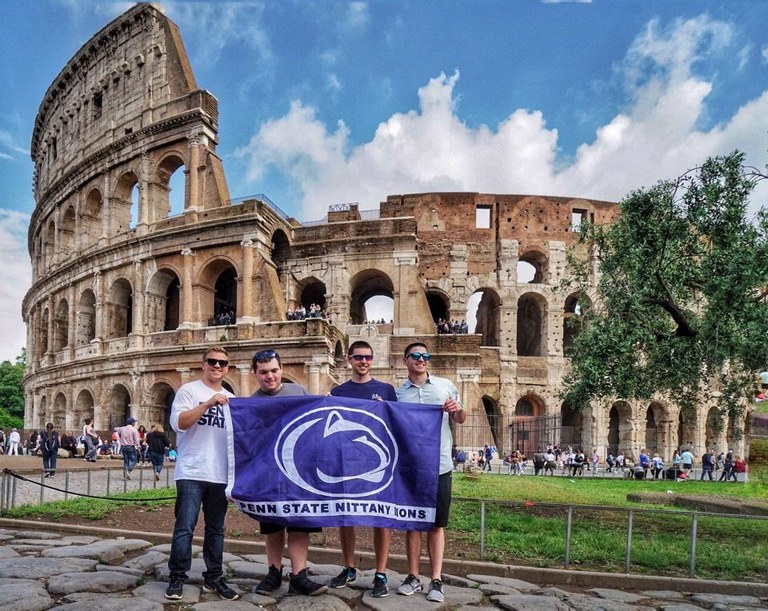Posted: September 2, 2020
The world is too big to assume how cultures operate, you must immerse yourself in them to know how they truly work.
In May 2018, I was lucky enough to travel abroad to Italy with my Turf 499 class. This trip was part of an embedded program. During the semester, this class met once a week in to discuss different relatable aspects of Italian life. The lectures consisted of mostly Turf professors but also other Penn State faculty. After we learned about the differences in the way Italians manage their golf courses we were able to take the trip to see that first hand.
As a kid I had always traveled around the country with my family, but this was my first time going to Europe. I was definitely nervous traveling without family but we had a small group of four students and six faculty so that allowed me to feel comfortable. We were traveling through a pre-planned scheduled itinerary. When we landed in Rome, we had a guide, Marta, who met us and picked us up in the bus that we would use throughout the whole trip. Something I liked about the trip was that it wasn't all about the educational aspect. We got to see the tourism aspects of the country as well. The first day we toured all around Rome and got to see many different ancient sites around the city including the Colosseum, the Vatican, Trevi Fountain, the Forum and many other old historical sites. The rest of the trip would take us to Florence, Bologna, and Venice where we visited golf courses and other historical sites along the way.
Something I was very happy about was that I have a background in Spanish so I found it easy to understand some of the signs as well as communicating with Italian speakers. The Spanish and Italian languages are very similar so this helped me greatly throughout the trip.
Some valuable skills I learned on this trip was how the Italian Golf Federation allows golf courses to operate their courses. The European Union has strict environmental regulations that golf course superintendents must follow to keep them eco-friendly. One of the big restrictions is the new ban of pesticide use. These superintendents are now tasked to manage pests, insects, weeds, diseases, using solely cultural practices. We witnessed and talked to superintendents that have just learned to live with certain flaws on their course because there is not much that can do to fix them. In the United States we are allowed to use chemicals to control most of our problems. So, this was a very intriguing difference in American and Italian golf.
This trip was a once in a lifetime trip for me. I got to see a beautiful country and learn so much about how their golf course industry operates. Also, the food was amazing as to be expected. While in each region of the country we tried the cuisine they were best known for as well as the different wines they specialized in. I am very thankful to Penn State for the amazing opportunity to travel abroad and see how my career industry operates in a different part of the world.
Ag Sciences Global
Address
106 Agricultural Administration BuildingUniversity Park, PA 16802
- Email globalag@psu.edu
- Office 814-863-0249
- Fax 814-865-3055
Ag Sciences Global
Address
106 Agricultural Administration BuildingUniversity Park, PA 16802
- Email globalag@psu.edu
- Office 814-863-0249
- Fax 814-865-3055


